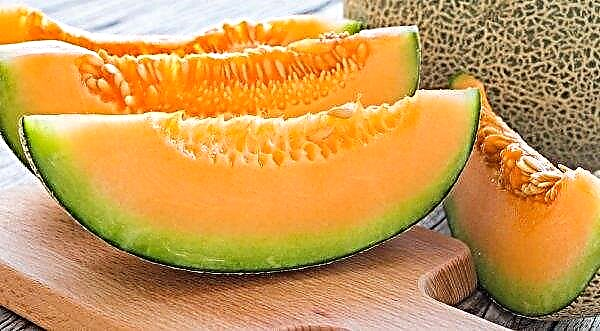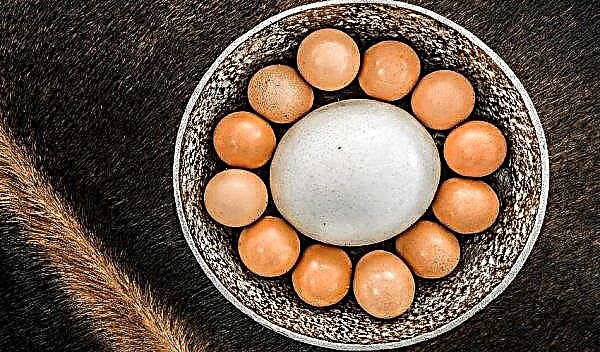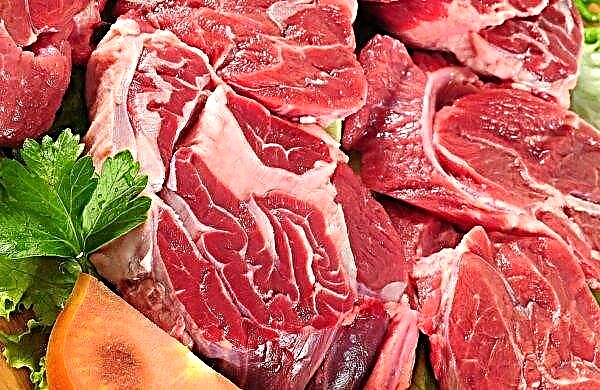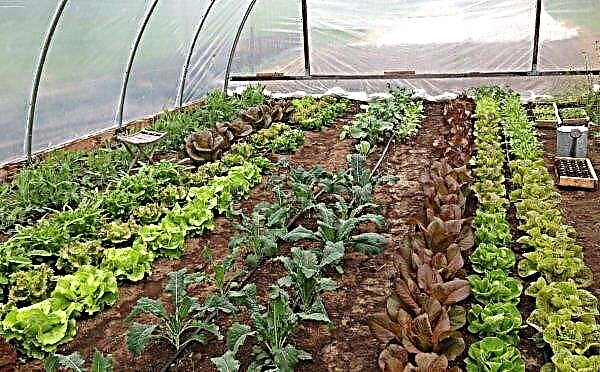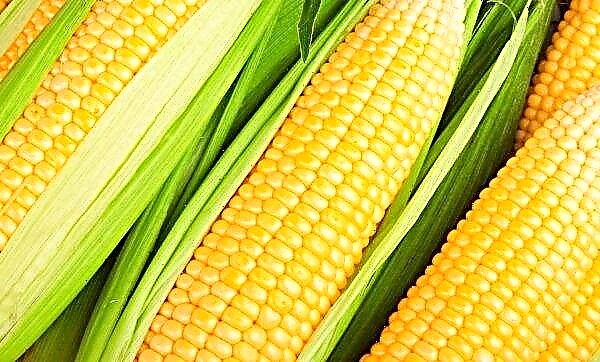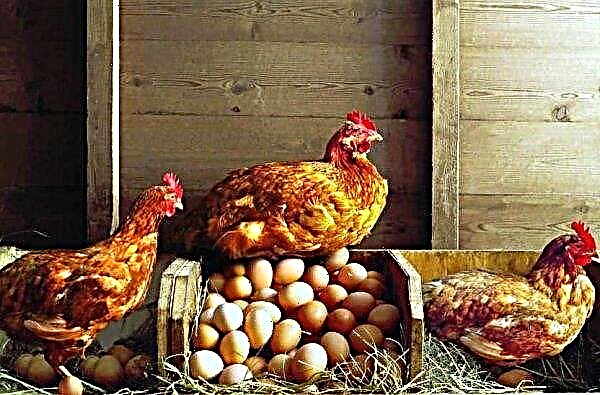Broilers are fed for quick tasty chicken. Owners of such breeds rarely consider them as a source of egg products. We will find out if broiler chickens can lay eggs, how they are useful, what conditions must be created for laying broiler breeds.
Do broilers rush?
Broiler chickens are capable of laying eggs, but usually do not live to puberty. Broilers are hybrids (crosses) of meat breeds of chickens. They are distinguished by rapid weight gain and are grown for the sake of meat products of excellent taste. Typically, broiler chickens are slaughtered starting at two months of age. Some broiler breeds gain weight up to 3 kg in 1.5 months. Of course, their egg production is much less than that of egg breeds, but, nevertheless, there are broiler breeds in which it is good.
Here are some of the egg production rates:
- Iza Hubbard F 15 - up to 200 pcs./year;
- ROSS-308 - 185 pcs / year;
- COBB-500 - about 170 pcs / year;
- Broiler-M - up to 165 pcs./year;
- Broiler-61 - 150 pcs./year;
- ROSS-708, Change, Hybrid-6 - 140 pcs./year.
When do broiler chickens start to rush?
At what age hens begin to trot, breed characteristics influence. Typically, broiler chickens lay eggs from 6-7 months. As a rule, females who have not gained the required weight by a certain time are left to receive egg products.
Important! Laying broilers should be kept until they are two years old, because after maturation, good egg production lasts no longer than 1.5 years. It is not practical to bear the costs of their maintenance.
Why are broiler eggs good?
Broilers are large and carry fairly large eggs.
Food eggs
The broiler egg size is large and their weight reaches an average of 60–65 g. Among them, specimens with 2 yolks are more common than other breeds. The nutritional value of egg products in broiler chickens is the same as in conventional laying hens. American researchers compared the composition of broiler eggs with products of other breeds, but did not find any differences.
Hatching eggs
Broiler chickens usually lack a hatching instinct, and an incubator should be used to obtain their offspring. However, incubating their eggs does not make sense. Broilers are hybrids, and their offspring do not inherit their high productivity. In the best case, chicks hatching slightly more weight than chickens of normal breeds. There is also a considerable chance that the chick will not hatch at all or will be born unhealthy, because inbreeding (closely related crossbreeding) is used when breeding some breeds.
Did you know? The first broilers were bred in 1930 when crossing the English meat breed Cornish and meat and egg chickens of the American selection Plymutrok. In the 60s of the last century, interbreeding for broiler chickens began to be used by most manufacturers.
To solve the question, whether or not to incubate egg products from broilers, is a person knowledgeable in breeding broiler breeds. You need to have a lot of knowledge to try to get a broiler breed at home. It is better to buy broiler eggs for incubation from a reliable supplier or in a farm specializing in broiler breeding, where professionals deal with this issue.
Features of the collection and storage of broiler eggs
Laying nests are checked every day and eggs are collected. In room conditions at temperatures up to + 20 ° С and at a humidity of 70–80% they are stored for 3 weeks. However, they are best wrapped in paper. In the refrigerator at a temperature of + 1 ... + 2 ° C they can be kept for up to 3 months. If the refrigerator has a temperature of + 5 ° C, then the shelf life of egg products is reduced to 35 days. It is best to keep them not in the refrigerator compartment door, but in the vegetable compartment.
Did you know? If eggs for food, stored indoors, are placed with saline (20 g / 1 l), then they can be stored for up to 4 weeks.
If you nevertheless decided to raise broiler chickens, it should be noted that for incubation, you need to take fertilized eggs no older than a week old, which were not stored in the refrigerator. The longer they are stored, the less likely they are to hatch from them. On the 15th day it is equal to 70%, and from the 20th day it is already only 20%.
Features of egg broilers
In order for the hens to rush well, their nutrition must be controlled. Laying hens are very prone to gain weight, and this factor negatively affects egg production. Therefore, in the diet of birds there must necessarily be a lot of green plants and a shell rock. Nutrition should be balanced in terms of the intake of essential proteins, fats, carbohydrates, vitamin and mineral supplements. The feed rate should be less than that of broilers for meat.
Important! Large eggs can clog the oviduct. Therefore, it is useful for laying layers of broiler breeds to massage the abdomen - this remarkably facilitates the masonry process.
Feed the hens 2-3 times a day. They must have free access to drink. It is necessary that there is enough water in the drinking bowls and it is clean. Drinking plenty of water improves egg production. When growing egg broilers, their weak resistance to many diseases should be taken into account. Therefore, birds should be regularly examined for timely detection of diseases, to do preventive vaccination. It is also necessary to monitor the cleanliness and heat in the room. Birds do not tolerate dampness. Keep the hens on a bed of sawdust or in cages of sufficient length. Free-range for them is not acceptable, and can be dangerous. It is necessary to provide an acceptable illumination of at least 12 hours a day. In winter, it is necessary to provide artificial lighting using lamps. Care should be taken to ensure that the laying hens lay in the nests, to monitor the cleanliness and dryness of the house.
It is also necessary to monitor the cleanliness and heat in the room. Birds do not tolerate dampness. Keep the hens on a bed of sawdust or in cages of sufficient length. Free-range for them is not acceptable, and can be dangerous. It is necessary to provide an acceptable illumination of at least 12 hours a day. In winter, it is necessary to provide artificial lighting using lamps. Care should be taken to ensure that the laying hens lay in the nests, to monitor the cleanliness and dryness of the house.
Do disinfection of premises and equipment in time, fight rodents. Broilers are carried, as well as egg laying hens, but due to the size of the eggs, they are more likely to have problems laying eggs. If desired, eggs can be obtained from laying broiler breeds. They are used as food, since their incubation to breed offspring usually does not make sense.

